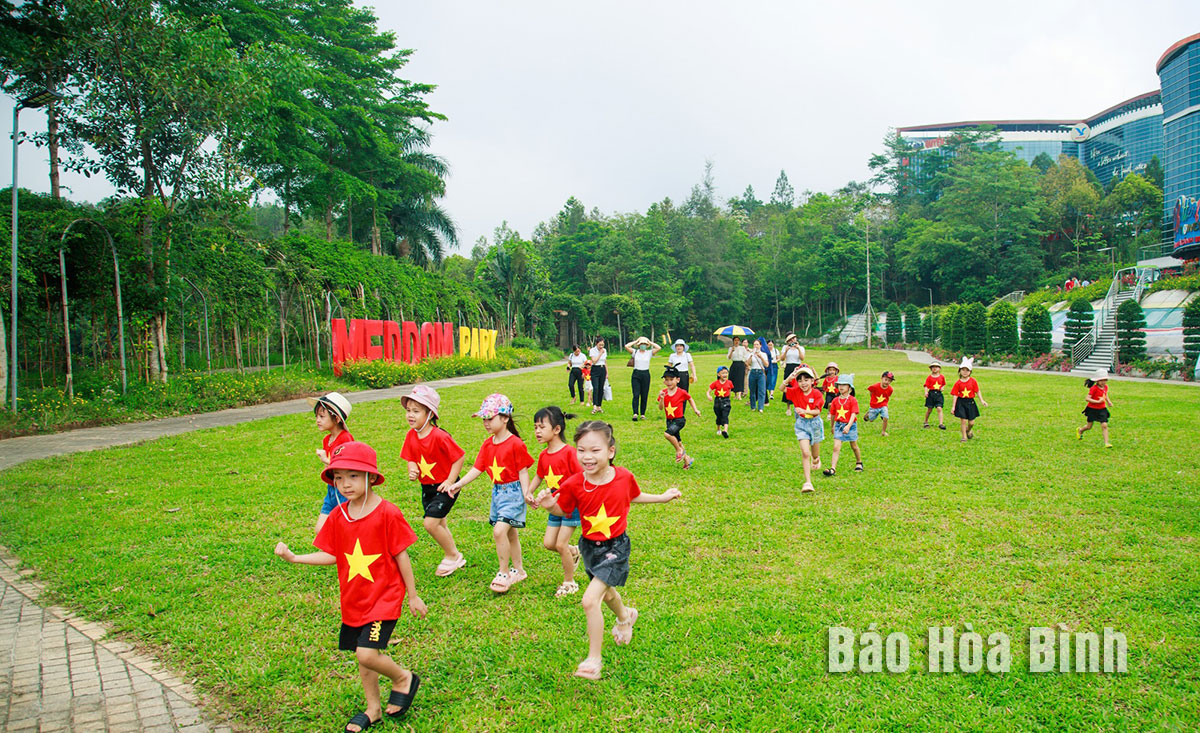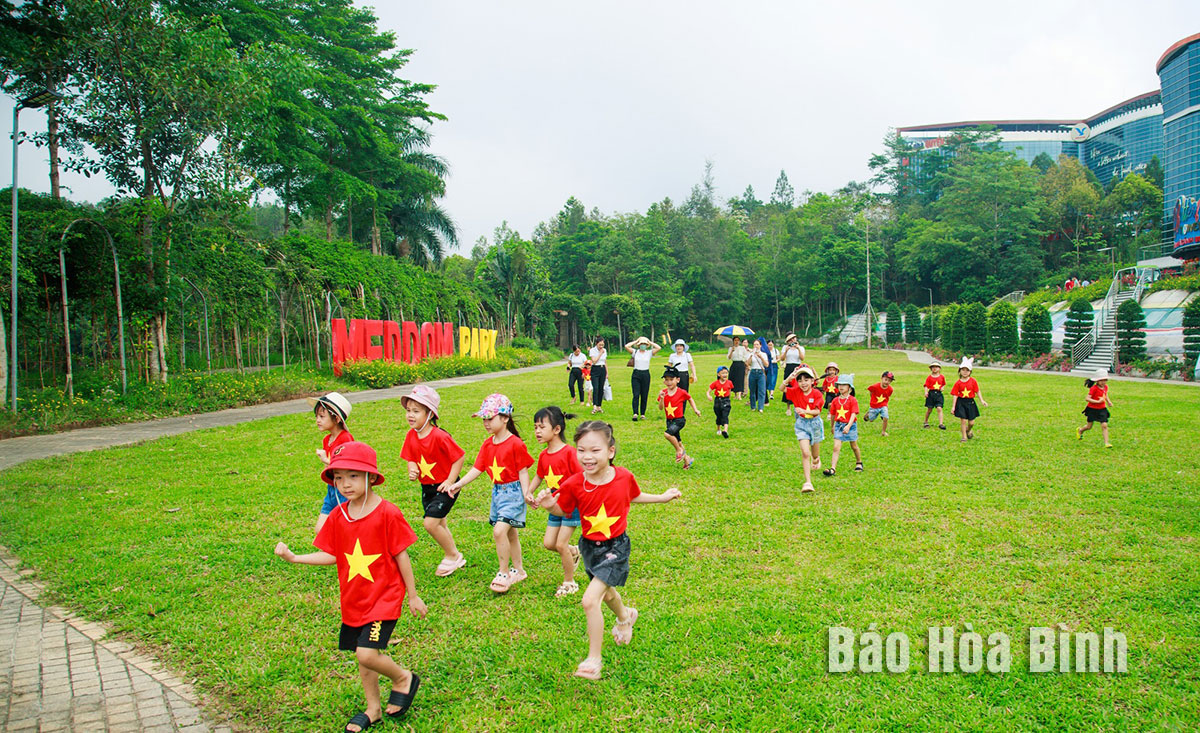
Blessed by nature with beautiful landscapes with hundreds of caves, waterfalls, grass hills and a cultural space imbued with ethnic identity, some destinations in Cao Phong district are likened to "fairyland" or "tourist paradise". Clearly identifying its potential and advantages, over the recent years, the district has continuously invested in embellishing, preserving and increasing the value of its landscapes and relic sites to develop tourism.

The Heritage
Park of Vietnamese Scientists (Meddom Park) in Bac Phong commune, Cao Phong
district, is one of the many attractive destinations for visitors of all ages.
In mid-July, Cao Phong One Member Co., Ltd. launched a new
tourism product: Ha Den vineyard tourist site in Cao Phong town. Coming there,
tourists are free to visit and take photos, and can buy grapes as gift.
Visitors are also guided by the company's technical staff on how to plant and
care for the vines if they want to experience it.
To make tourism and services a key economic sector of the
district by 2025, with an average growth reaching at least 15%, bringing the
proportion of the industry to 30% by 2025 and 40% by 2030, the district has
been focusing on implementing key tasks and solutions such as continuing to
promote dissemination to raise public awareness of tourism development,
mobilising resources to invest in building infrastructure, especially
transport, wharf and telecommunications infrastructure.
Attention will be paid to speeding up socialisation of
investment in construction of tourism infrastructure; building eco-resorts
combined with high-quality entertainment services, historical and cultural
relic sites, community-based and spiritual tourism sites; developing diverse
and attractive tours to attract more visitors; building typical local tourism
products; and improving the quality of spiritual tourism in the Hoa Binh Lake
tourist area like Thuong Bong Lai and Dong Son temples in Cao Phong town, Khanh
pagoda in Thach Yen commune, and Quen Ang pagoda, and Mo Muong cultural space
in Hop Phong commune.
To date, the district has established 88 Muong ethnic
cultural clubs in communes and residential areas and preserved over 1,600 gongs
and nearly 100 traditional stilt houses in the community. Tourism promotion and
development has received due attention.
In 2023, Cao Phong welcomed over 331,800 tourist arrivals,
including over 3,000 foreigners, a year-on-year increase of 114.4%. In the
first half of this year, over 225,000 tourists, including 3,315 foreigners,
chose the district as their holiday destination.
A diverse chain of eco-tourism and resort destinations concentrated in Hoa Binh city and the districts of Tan Lac, Da Bac, and Luong Son… Along with the launch of several key high-quality resort tourism projects, these developments have reshaped the landscape and enhanced the appeal of Hoa Binh as a travel destination.
Boasting diverse terrain, a mild climate, and rich natural resources, Cao Phong district is increasingly asserting its place on Vietnam’s tourism map, attracting both domestic and foreign visitors. The district is renowned for its stunning landscapes, majestic mountains, a crystal-clear hydropower lake, and the unique cultural identity of local ethnic groups.
With its pristine landscapes, unique cultural heritage of Muong ethnic minority, and an expanding range of visitor experiences, Tan Lac district of Hoa Binh has fast become a captivating destination for both domestic and international tourists.
Until now, Sung village in Cao Son commune, Da Bac district remains the only Dao ethnic community in Hoa Binh province to develop a community-based tourism model. Beyond its untouched natural landscapes, cultural identity serves as the cornerstone attraction for visitors.
Alongside the diverse cultural identities of the Kinh, Muong, Tay, Thai, Dao, and Mong ethnic people, Hoa Binh province is also renowned as the "capital" of the northwestern Vietnamese cuisine, offering unique and distinctive dishes. At festivals, during Lunar New Year (Tet), or on significant family or community occasions, special dishes are prepared, leaving a lasting impression on visitors.
A Phong Linh (Yellow Tabebuia) flower garden in Thang village, Thach Yen commune, Cao Phong district is currently in full bloom, drawing a large number of visitors.



